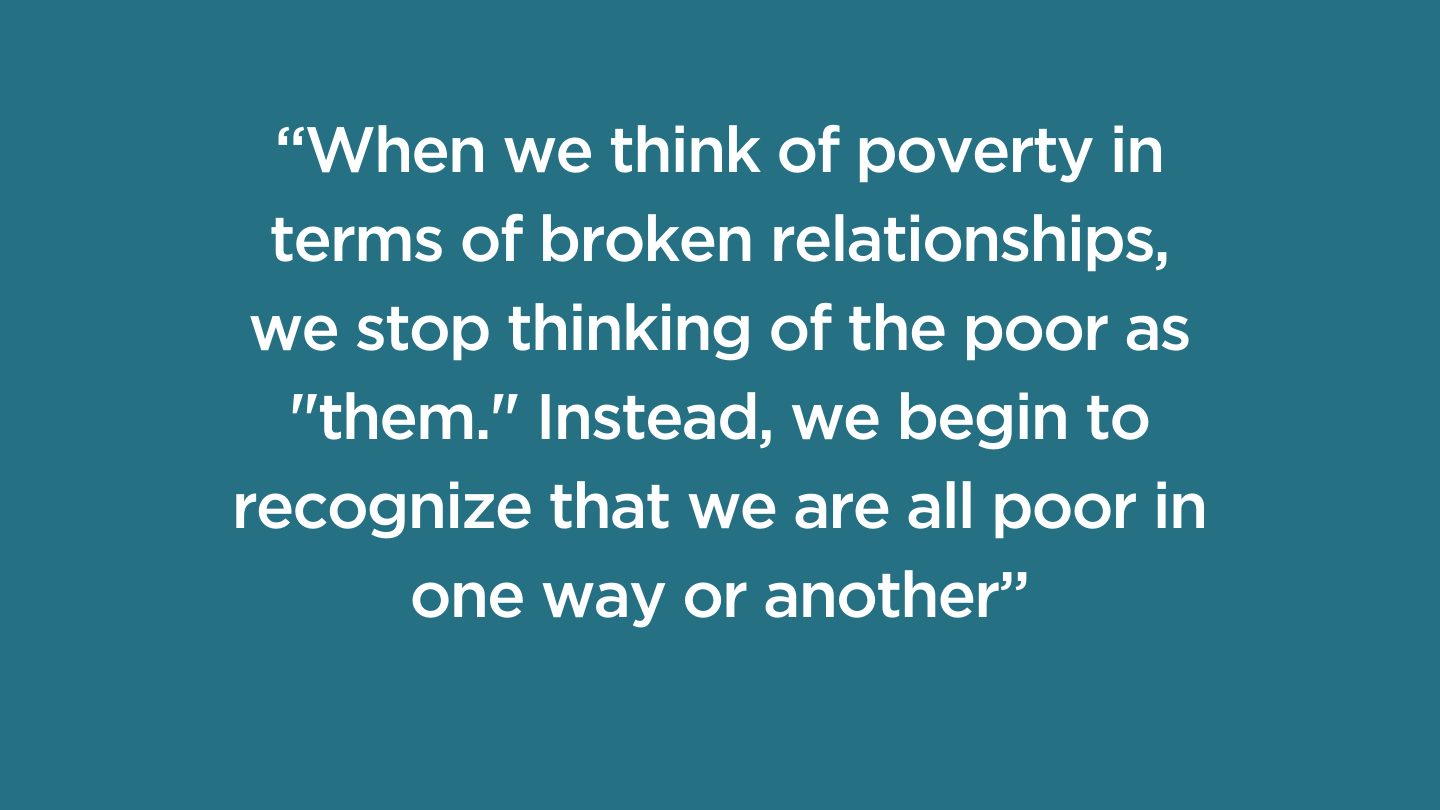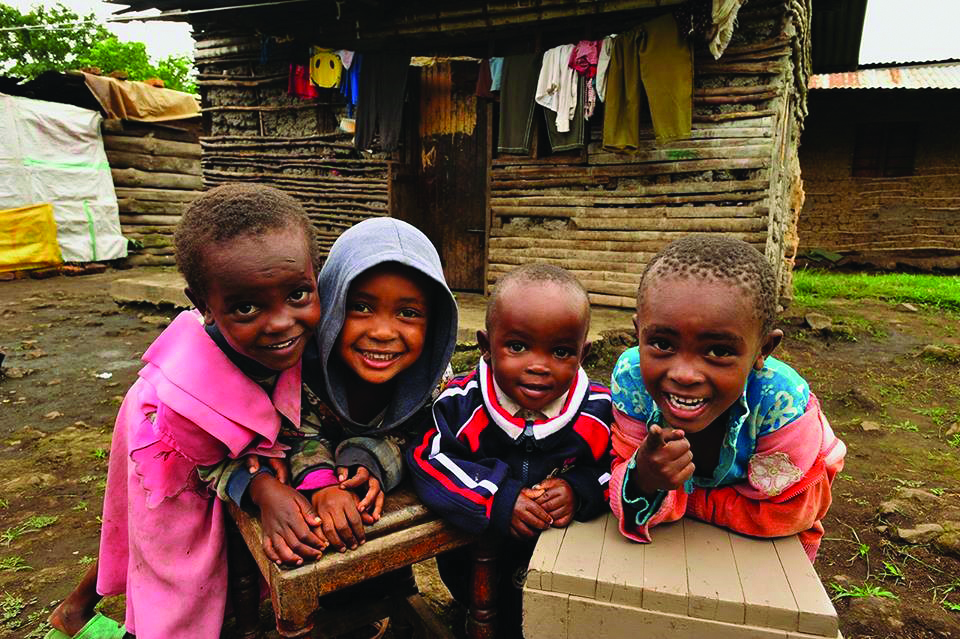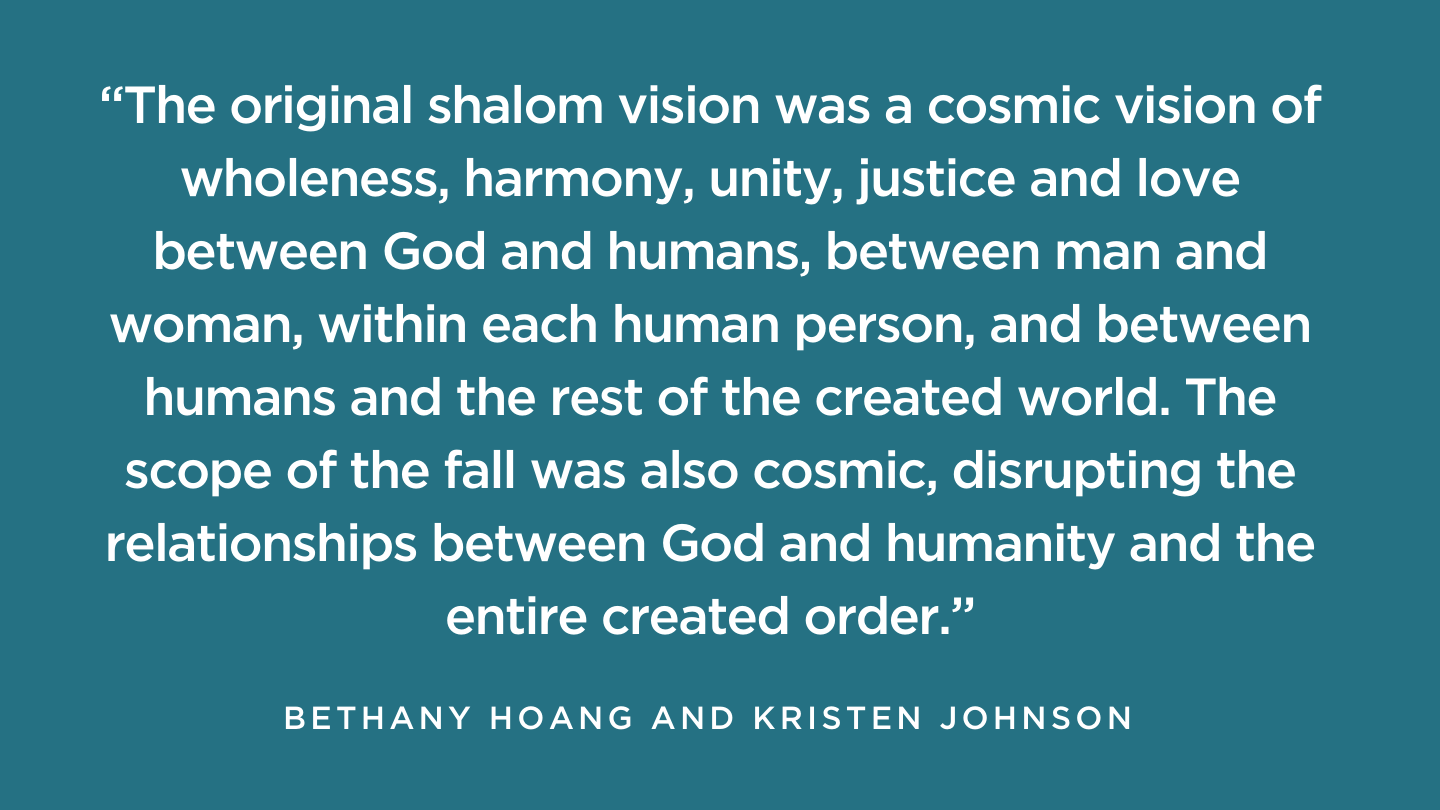Eyes to SeeSample



It wasn’t supposed to be this way. Poverty was never God’s plan.
If we go back to the story of Creation, we see that the world God created was declared “very good.” Adam and Eve had plenty and enjoyed the fruits of their work. They walked with God and had no shame with one another.
And then.
And then people did the one thing God had told them not to do. And what happened had a massive ripple effect. It didn’t just damage the relationship with God, but it broke all the other relationships, too.
We were designed for relationships. God—who is relational in His very nature as Father, Son, and Holy Spirit—made us to be like Him and centre our lives on four fundamental relationships: with ourselves, God, others, and creation. When those relationships are healthy and functioning, we can enjoy life as He intended: free from poverty, oppression, injustice, and brokenness. However, when those relationships are broken, we have no one to turn to but ourselves. We hoard, we exhibit greed, we war and abuse. We close our eyes to the suffering of others.
The Bible itself reveals various reasons for poverty. Injustice leads to poverty. As Proverbs 13:23 says, “A person’s farm may produce much food, but injustice sweeps it all away” (NLT). Foolish choices do, too(Proverbs 28:19). Social isolation can ruin us (Proverbs 19:4). And while those in poverty are often judged harshly, the Bible reveals that just as the poor can be both wise and foolish, so can the wealthy (Proverbs 28:11). Regardless of the cause, we tend to think of poverty as an economic problem requiring an economic solution. We assume poverty only means a lack of things or money.
But Bryant Myers, a leading Christian development thinker, says, “Poverty is fundamentally relational, and its cause is fundamentally spiritual.”
When we think of poverty in terms of broken relationships, we stop thinking of the poor as “them.”
Instead, we begin to recognize that we are all poor in one way or another.
In the 1970s, Tony Neeves left a promising advertising job to become the communications director of a new non-profit in the UK, Tearfund. On one of his first visits to the developing world, he went to Guinea Bissau and witnessed the extreme poverty of the subsistence farmers. As he said goodbye to one of the villagers he had met, he told him he would pray for him because he was so poor. The villager said that he would pray for Neeves as well, saying, “as you are also so poor.” Neeves was puzzled. He wasn’t poor at all, so he asked the villager why he had said this. The villager replied, “Oh, you are poor! You have God and things that take your eyes off God. We have only God.”
The story of poverty—as much as it might surprise us—is our story.

Reflect:
- Do you agree with this definition of poverty? Why or why not?
- What forms of poverty do you see in your own life?
- How do you react to the idea that you are poor?
Pray:
Lord, if I’m honest, I don’t like the idea of admitting my own poverty. I feel like Adam and Eve in the garden, trying to cover my nakedness and shame. But You know who I am. You know my needs, my poverty, as well as the ways in which I am wealthy. As I reflect on poverty, help me to accept the reality of brokenness in my own life, too. Amen.

Scripture
About this Plan

Jesus had compassion, especially for those facing poverty, injustice, and inequality. What is our response? Do you see the world the way God does? If you want to go deeper and understand the spiritual root of poverty, join us for this 42-day video-assisted bible study from Compassion Canada. Ideal for group study or a challenging personal journey. Abridged and Updated.
More
We would like to thank Compassion Canada for providing this plan. For more information, please visit: http://cmpsn.ca/YV
Related Plans

The -Bilities of the Believer

Exploring Biblical Wisdom - Words From the Wise

Church Planting in the Book of Acts

Politics for People Who Hate Politics

Visionary Marriage: God's Call to Husbands

We're So Blessed: A Fun 5-Day Family Devotional From CAIN

Childrearing With the End in View: A 3-Day Parenting Plan
5 Prayers for Your Dating Relationship

5 Prayers to Stop Thinking Negatively About Your Spouse
